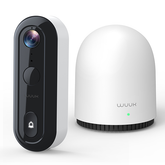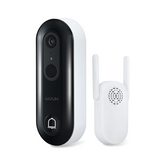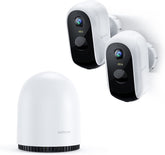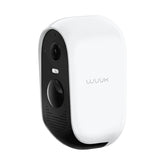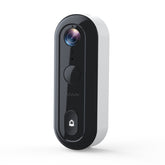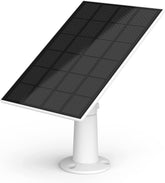Wired vs. Wireless Home Security Cameras: How to Choose Which is Best for You?
Home security cameras, the modern guardians of residential safety, are instrumental in monitoring our homes and protecting our loved ones. The decision to install one triggers a barrage of choices. From assessing the different brands to evaluating various features, the process can seem daunting. A crucial element to contemplate is the choice between wired and wireless systems. This blog aims to guide you through the complexities of both options, dissecting their strengths and weaknesses and ultimately helping you pick the right fit for your unique circumstances.

Home Security Cameras
Wired home security cameras are surveillance cameras that are connected to a power source and your home's internet network via cables.
Advantages of Wired Home Security Cameras
- Reliability: By virtue of being directly connected to the power source and recorder, wired security cameras deliver consistent and uninterrupted surveillance unaffected by Wi-Fi signal strength or other wireless devices in the vicinity.
- Superior Video Quality: Wired security cameras often provide high-definition video quality. They're able to capture intricate details, which can be instrumental in instances where identifying features like faces or number plates is essential.
- Scalability: With the ability to support a large number of cameras, wired systems are the go-to for extensive properties. They ensure consistent performance regardless of the number of connected devices.
Disadvantages of Wired Home Security Cameras
- Installation Challenges: The setup of wired cameras involves drilling holes, running cables around the house, and connecting everything to your electrical system. The process can be invasive, labor-intensive, and typically requires professional assistance.
- Inflexibility: The placement of wired cameras is dictated by the location of power outlets and the length of connecting wires. Once installed, moving them can be quite a task, making them less suitable for renters or those who require mobility in their security setup.

Wireless Home Security Cameras
Wireless home security cameras are surveillance cameras that connect to your home's wifi network to transmit data and often rely on built-in batteries for power.
Advantages of Wireless Home Security Cameras
- Easy Installation: The setup of wireless security cameras is comparatively simple, requiring no invasive drilling or complex wiring. This feature makes them an ideal option for those who prefer a DIY approach to home security.
- Portability: One of the significant advantages of wireless cameras is their ease of relocation. If you're a renter or if you wish to experiment with the best vantage points, wireless cameras provide unparalleled flexibility.
- Remote Monitoring: Wireless cameras, when connected to your home's Wi-Fi network, allow you to remotely access the video feed through a dedicated app on your smartphone or computer. This means you can monitor your home from anywhere, at any time.
Disadvantages of Wireless Home Security Cameras
- Wi-Fi Dependence: Wireless cameras' performance is contingent on the strength and reliability of your Wi-Fi connection. Poor internet quality can lead to intermittent video feeds and lowered camera performance.
- Battery Maintenance: Battery-powered wireless cameras necessitate regular checking, charging, or replacing of batteries. This upkeep can be burdensome for some users.
- Potential Security Vulnerabilities: Despite security measures, wireless cameras can be susceptible to hacking due to their Wi-Fi dependence. It's essential to keep your camera's firmware updated and secure your home network to mitigate this risk.

How to Choose the Best Home Security Cameras?
When deciding between wired and wireless home security cameras, consider the following factors to ensure the best fit for your needs:
- Property Size and Scope: Larger properties might benefit more from a wired system due to its ability to support more cameras and provide more consistent performance.
- Installation Considerations: Assess your comfort level with installation requirements. If you prefer a hands-on, DIY approach, a wireless system might suit you. However, if you're open to a more complex setup or hiring professionals, a wired system can be considered.
- Flexibility Requirements: If you anticipate the need to frequently move the cameras or are residing temporarily, the portability of wireless systems would be advantageous.
- Internet Connectivity: Analyze the quality and reliability of your internet connection. If it's weak or unstable, a wired system might provide more dependable surveillance.
By aligning these considerations with your home security goals, you can make an informed decision that best suits your specific situation.
Conclusion
Navigating the wired vs. wireless home security camera debate can seem like a daunting task, but by understanding their unique strengths and weaknesses, you can make a well-informed decision. Wired systems, with their consistent performance and high-quality video, are ideally suited to larger, permanent setups. In contrast, wireless cameras offer convenience, flexibility, and remote monitoring, perfect for those looking for an adaptable security solution. Remember, the best home security camera for you is one that aligns with your unique needs and provides you with peace of mind.


